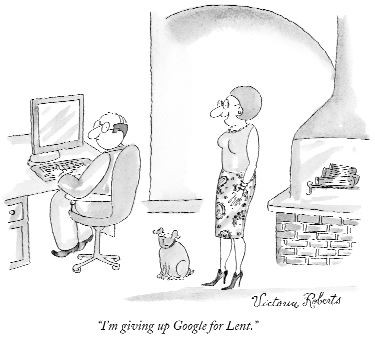Century Marks

What would Jesus say? A Baptist church in Sydney, Australia, created a stir by posting a sign reading “Jesus loves Osama.” Prime Minister John Howard, for one, was not pleased. “I understand the Christian motivation of the Baptist church,” Howard said. “But I hope they will understand that a lot of Australians, including many Australian Christians, will think that the prayer priority of the church on this occasion could have been elsewhere.” A spokesperson for the Baptist church said, “All we are doing is sharing the gospel” (telegraph.co.uk, February 2).
Conflicting dates: Marcus R. Ross wrote his doctoral dissertation at the University of Rhode Island on mosasaurs, marine reptiles that vanished about 65 million years ago. That’s not a suprising topic in itself, but it is a surprising topic for a scientist who is also a young-earth creationist, someone who believes that the earth is not more than 10,000 years old. How could he do research on this subject? Ross says that there are two paradigms for studying the past, that of scripture and that of science. He wrote his dissertation using the scientific paradigm (New York Times, February 12).
Religion on the campaign trail: Mitt Romney, Republican candidate for the presidency, is not the only politician whose religious faith (Church of Jesus Christ of Latter-day Saints) is being scrutinized. Democratic candidate Barack Obama has been criticized because his congregation, Trinity United Church of Christ in Chicago, holds to a “Black Value System.” Besides stressing self-reliance, self-respect and self-discipline, the congregation disavows the pursuit of “middleclassness” (Chicago Tribune, February 6). Hillary Clinton has been accused of adopting a religious persona for political gain, though as Newsweek reported (February 12), the religious roots of her commitment to social justice are deep, going back to her youth as an active member of a Methodist congregation in a Chicago suburb.
You be the judge: Right-wingers have taken the Democratic National Committee to task for inviting a Shi‘ite imam to lead them in prayer at their winter meeting. One critic claims that the imam “prayed for the conversion of non-Muslims to Islam, as well as for the destruction of Israel.” Here’s the text of the prayer: “In the name of God the most merciful, the most compassionate. We thank you, God, to bless us among your creations. We thank you, God, to make us as a great nation. We thank you, God, to send us your messages through our father Abraham and Moses and Jesus and Muhammad. Through you, God, we unite. So guide us to the right path. The path of the people you bless, not the path of the people you doom. Help us, God, to liberate and fill this earth with justice and peace and love and equality. And help us to stop the war and violence, and oppression and occupation. Amen” (dallasnews.com, February 8).
God and guns, Russian style: Russian president Vladimir Putin has said his country’s security depends upon two things—its traditional religions and its nuclear forces. “These themes are closely connected because both the traditional faiths of the Russian Federation and Russia’s nuclear shield are two things that strengthen Russian statehood and create the necessary conditions for ensuring the country’s internal and external security,” Putin said at a media conference. There is an increasingly close relationship between the Russian Orthodox Church and the Russian military. Patriarch Alexei II preached at the church of the Strategic Rocket Forces command center on the feast day of the early church martyr St. Barbara, the forces’ patron saint (ENI).
Vocabulary builder: The “word of the year” for 2006, according to the American Dialect Society, is plutoed; to be plutoed is to be demoted or devalued, just as Pluto was downgraded from its status as a planet in the solar system. Runner up was “climate canary,” which refers to an organism or species whose poor health or declining numbers suggests an environmental crisis is on the horizon. In 2005 the word of the year was truthiness, referring to what one wishes to be true regardless of the facts (americandialect.org).
Grey matter: A United Methodist pastor has been preaching a series of sermons drawing on the TV show Grey’s Anatomy. Richard Hunter’s sermons focus on the character foibles of the medical interns in the show. He claims that the series has drawn people to church who would not come otherwise. Jeremy Biles, religion instructor at the University of Chicago, calls such preaching “catering to your audience” (Redeye, February 2).
Let’s talk about sex: A coalition of national religious leaders has issued an “Open Letter to Religious Leaders on Adolescent Sexuality” that calls for a faith-based approach to helping adolescents understand their sexuality and make informed choices about their sexual behavior. Faith communities should “support parents in their role as the primary sexuality educators of their children and adolescents” and “provide an environment where sexuality, intimacy, and relationships are discussed openly and honestly with trained youth leaders.” Youth should “be welcomed and respected by the faith community regardless of their life circumstances and sexual decisions,” the statement says (religiousinstitute.org).
Visiting the submergent church: Yes, the article The submergent church (February 6) was a spoof of cutting-edge, culturally contextual, postdenominational, nontraditional ministries. We’re sorry if that fact was obscured in the presentation. Part of the humor, we thought, was precisely that the description of “the Master’s Playhouse,” where, “with respect to God’s grace, less is more,” services are 15 minutes long and visitors are blindfolded before being taken to a service, was almost, but not quite, plausible.
Religious wrongs: The director of Britain’s Islamic Medical Association is discouraging Muslims from vaccinating their children for measles, mumps and rubella because the vaccines contain animal products forbidden to Muslims (Chicago Sun-Times, January 30).





